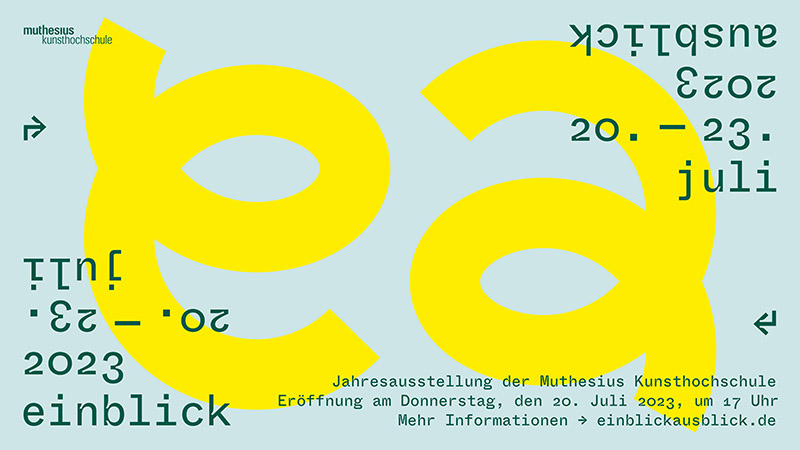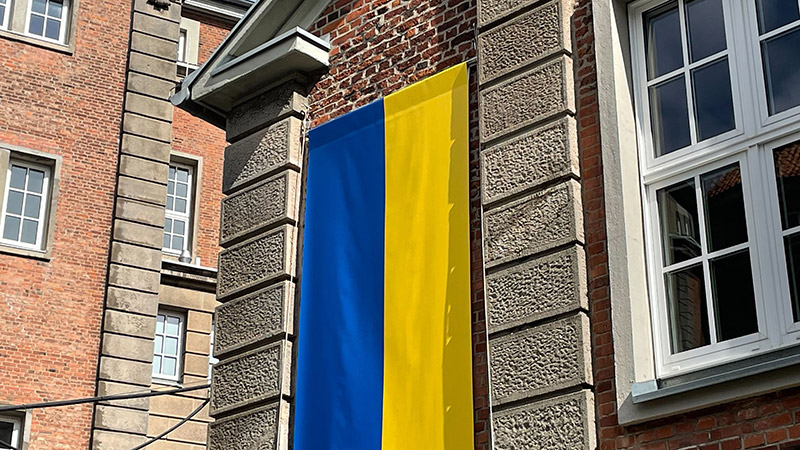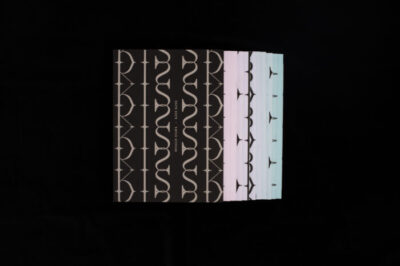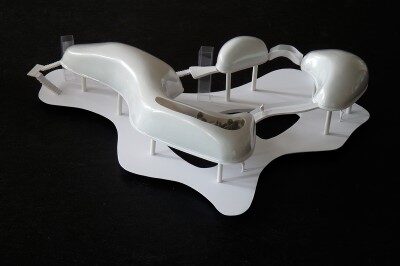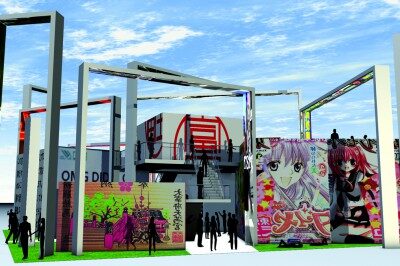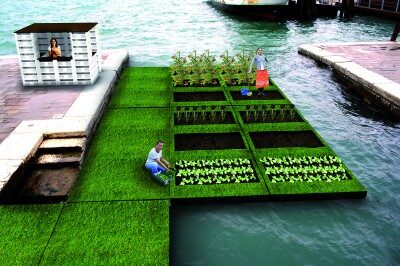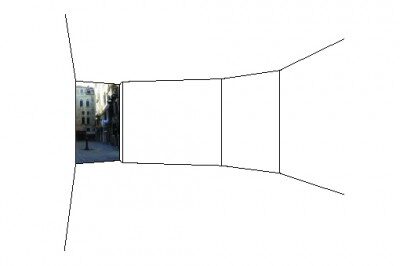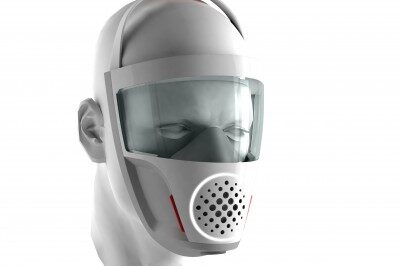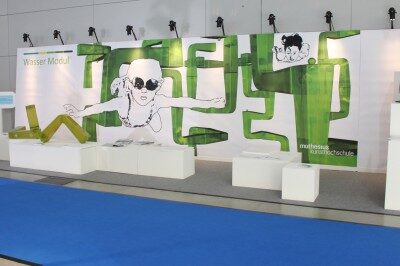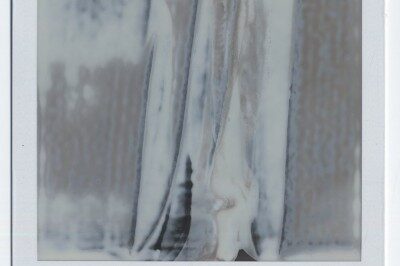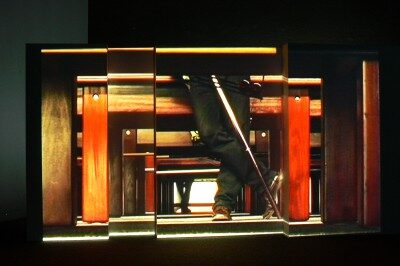The particular significance of workshops at the university results not only from artistic ways of working with materials, models or in virtual projects but also from the communicative possibilities of the exchange of experience and methods in the workshops beyond normal studies. In particular, artistic and academic methods to manage tasks are learnt and explored in the interdisciplinary project studies. The workshops and studios are facilities with a high relation to reality in which the concrete and experimental implementation of creative and artistic projects takes place. They are organised by experts who are actively involved in teaching and are available for assistance.
Photography workshop
The photo studio as well as our laboratories are available to all students after appropriate introduction. At the beginning of each semester, we offer extra courses for this purpose. If the project is already fixed, then it is worthwhile to make an individual consultation appointment, so that we can give specific assistance. If you have chosen photography as your main focus, we can provide you with equipment for your projects. Our stock includes digital as well as analog 35mm, medium format and large format cameras, digital backs for medium format and view cameras, lenses and accessories.
The photo studio is fully equipped with common accessories, including various backgrounds (including blue and green screen), halogen lamps and the latest studio lighting equipment (multi-flash, Briese). In the black and white labs, film development and enlargement work of negatives (24x36mm-4x5inch) are possible. The color lab is equipped with color enlargers for negatives (24x36mm-9x10inch), E-6 slide film development (Jobo ATL 3) and a color continuous feed machine (Colenta) for paper developments from color negatives. The digital lab consists of 8 workstations with different image, video and 3D processing software, transmitted light scanner (Imacon Flextight; Nikon) for slides/negatives (24x36mm – 4x5inch), Eizo monitors, printers (Epson, Canon), color management equipment, sampling station (Spectralight) and color laser printers (Canon Image Press C1 and Imacon CP2020).
Media workshop
We create audiovisual media. We offer students of all disciplines our expertise as well as all kinds of technology for their production and presentation. Prerequisite for their use is the participation in one of our introductory courses on digital video or audio editing systems, lighting and camera technology as well as the creation of DVDs .
The video and sound workshop is assigned to the Center for Media and is located in the basement of the old building in the immediate vicinity of the EDP Center. It has a seminar room, a small video studio and digital editing suites, which we only allow graduates of the video editing and sound studies courses to use. Five non-linear editing systems are available (Premiere and Final Cut Pro as well as Logic and Live). Students from all areas can borrow cameras, light cases, blue boxes, tripods and microphones, video projectors and DVD players by appointment and brief project description.
Model workshop
With the machines and tools available to us, we process all woods and wood-based materials as well as plastics, including PU foams, semi-finished products, fiber-reinforced plastics and various casting resins. With the help of our CNC milling machine, 3D model data can also be processed directly into a model part.
We pursue the idea of offering students the greatest possible creative freedom in the implementation and visualization of their ideas. Model making is one of the ways at Muthesius Academy of Fine Arts to express oneself formally and to make creative thought processes visible. In our workshop courses, we teach basic knowledge in materials science and machine handling as well as work safety and hazardous materials regulations.
The model-making workshop comprises the machine hall, the plastics room, a paint room and the 24-hour workshop on the first floor of the workshop tower at Knooper Weg and is open to students of all courses of study after the introductory course.
The model workshop is regularly open Monday through Friday from 8:30 to 17:30. However, course graduates are entitled to use parts of the workshop outside opening hours in accordance with the workshop rules.
Prototyping
In the prototyping lab, students can learn and apply modern digital manufacturing and visualization methods for the implementation of their projects. Whether 3D printing or laser cutting, technical drawing or animated films, interactive prototypes or virtual reality – here they screw and solder, research and experiment!
Metal workshop
The metal workshop is available to students of all courses of study all day and, by arrangement, also at weekends. The aim is to familiarize students with the respective materials and the latest and also common processing techniques in semester or compact practical courses; i.e. to work out the diverse areas of application using exemplary examples, to sound out properties and specifics and to achieve optimum results in the selection of possible production processes.
The training program includes manual exercises in the most important machining and processing techniques as well as learning how to use the essential tools and machines. In addition, electronic modules are increasingly being embedded. In addition, special applications in the field of CAD are covered through cooperation with the metal workshop of Fachhochschule Kiel, and special applications such as laser technology are carried out in cooperation with specialized metal companies in Kiel. All traditional as well as innovative materials are processed according to project requirements. Recently, additional techniques such as metal casting and water jet cutting have become available. The production of models and prototypes up to readiness for series production within the framework of semester, bachelor and master theses is carried out in consultation with the teaching staff. Any independent work by the students takes place after prior safety instruction on the machines.
Polygraph workshop
Accompanied by our experts, students learn the basics of typesetting, printing and bookbinding in the print workshop. Printing plates are produced in the prepress stage. From traditional lead typesetting to screen and letterpress printing to offset processes, solutions can be determined under realistic practical conditions and tried out on our machines. The print workshop is not intended as an extended workbench, but rather as an experimental and project-related implementation of graphic tasks for students’ term papers. To this end, we offer workshop courses on subject-related topics that are coupled with practical exercises: e.g. typography, materials science for bookbinders, and multicolor screen printing. The most important concern of the workshop management is that the basic and expert knowledge imparted can be applied “cross-medially” in the future, quasi interdisciplinary, since familiar process methods are constantly and continuously changing, although the physical principles behind them remain the same.
Our print shop is set up in line with the times thanks to an up-to-date workflow from printing forme production (ComputertoPlate) to the 4-color offset press. A variety of systems for assembling, impositioning and checking data are used in cooperation with the students to quickly and easily recognize the different possibilities of a desired realization of print media and to implement their own design concept in the best possible way. To this end, the fixed and variable influencing variables of a process optimization in offset printing are highlighted and worked out.
An extensive sample archive with printing substrates and paper types is available to students for selecting haptics, optics and sound. The instant data ambulance helps with data production and verification, also for digital printing and web presentation. A certified color proofing system simulates all printing processes and substrates and allows visual sampling thanks to accurate reproduction. We produce films for screen printing, generate data for a tool production and provide in-depth knowledge of all technical possibilities and their future potential in the printing field. In addition to the workshop courses and block seminars, this also includes the prepress and printing technology module parts of the communication design course.
In addition, an experienced bookbinder teaches students the basics of bookbinding and materials science. Under his guidance, students create workpieces such as block covers, fanfolds, folders, boxes, brochures and book covers in thread sewing and perfect binding.
Workshop for artistic printing techniques
In compact one-week basic courses during the lecture-free period, the fundamentals of artistic printing techniques are taught: Letterpress and monotype, intaglio, photo etching, lithography, and printing techniques for teaching. The aim of these courses is to enable students to work independently in the workshop and to gain a sound knowledge of the technical possibilities so that they can then implement their own artistic ideas in printmaking. After completion of the basic course, students can work individually, also with intensive support from the workshop leader for experimental work and special techniques such as photo etching, monotype, etc.
The workshop is open to students from all departments.
Ceramics workshop
Designs and concepts for ceramic works are created at our studio workstations, which are equipped with computers. Students majoring in liberal arts and ceramics can use them throughout the semester; all others may work on them on a project-by-project basis. Then it’s on to the development of the forms. To this end, we teach ceramic construction techniques, by hand but also on technical equipment.
Our workshop is equipped with a countercurrent mixer, a vacuum extrusion press and offers mass preparation with a pan grinder. There is also a laboratory for glaze development and preparation. We have a firing room with electric and gas kilns and in the yard a traditional kiln to be fired by wood.
Sculpture workshop
In contemporary art, in addition to the classical techniques of sculpture, virtually any technique and material can be incorporated into the pictorial process. We even use processes and materials that are foreign to art. In this almost unlimited field of possibilities we offer orientation through courses and workshops as well as project consulting and project support with all the conceptual and visual-technical aids available to us.
In addition to a small hall open to the roof, in which room-sized works can be realized, there are three closed work rooms, a group room with a kitchenette, a room for plastic work, areas for metal, wood and molding work, and a small office. The technical equipment is tailored to a wide-ranging studio operation in the plastic field. Some larger machines such as circular saw, impact shears and welding equipment are complemented by an extensive selection of small equipment and tools. Professional modeling trestles and bogies as well as suitable tools can be provided for modeling courses and studies.
Painting workroom
In our workshop for painting we are equipped for the ancient techniques of painting. The traditional painting of different cultures was always also handicraft. In the workroom for painting these techniques are taught and made possible: from oil painting on chalk ground to tempera to casein painting, encaustic and many others. We can stretch canvases there or work on rigid painting supports. Workbenches, refrigerator and hotplates for heating the glue are available. You can experiment with different pigments and binders and also work with strong-smelling paints. An instructor imparts the practical knowledge; workshops introduce special topics.
